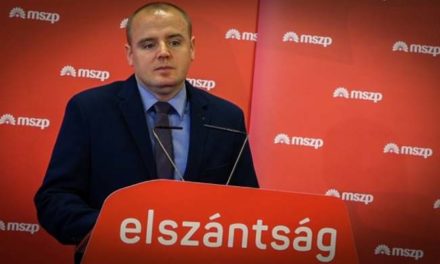The Hungarian government has requested the help of the High Commissioner for National Minorities of the Organization for Security and Cooperation in Europe (OSCE) in order to postpone the implementation of the new Ukrainian law, according to which minority schools would practically cease in the country from September, Minister of Foreign Affairs and Trade Péter Szijjártó announced in The Hague on Tuesday.
After his meeting with the relevant OSCE High Commissioner, Kairat Abdrakhmanov, the head of the ministry underlined: at the beginning of the war in Ukraine, the government decided not to bring up the issue of the disenfranchisement of Transcarpathian Hungarians while the armed conflict was raging, and it did so as long as possible, but the controversial recent law further worsened the situation of the Hungarian national community.
"Following the law passed in December, the reality is now confronting us with its full force, as minority schools will practically cease to exist in Ukraine from the first of September this year. This is clearly unacceptable"
he stated.
There are currently ninety-nine Hungarian primary and secondary schools in Ukraine, which will become state educational institutions instead of minority ones as of the first of September following the new law, and national-language matriculation exams, admissions and vocational training will also cease, he reminded.He then added that after the 4th grade of primary school, the number of subjects and lessons taught in the mother tongue must be reduced to 20 percent, and the right to choose the language of education will be taken away even from universities.
Péter Szijjártó emphasized:
"all this is happening in a country that wants to be a member of the European Union, while in the European Union serious legislation protects national communities".
"While we in Hungary are carrying out the largest humanitarian action in the country's history, while we are accepting Ukrainian refugee children in 1,300 kindergartens and schools, almost a hundred Hungarian schools in Transcarpathia are prohibited from continuing to operate as Hungarian-language schools or minority schools," he said.
"This is clearly unacceptable, it's a shame. This is a case against which international organizations and the European Union must and should act"
he declared.
In this regard, he welcomed the fact that the OSCE High Commissioner always had an understanding approach to this issue, and was always willing to look at it factually and not influenced by political expectations or ideologies.
"He himself made it clear that this is an obviously unacceptable situation and contrary to international law, so I asked for his help in delaying the implementation of the law in Ukraine"
- He told.
The minister emphasized that the government continues to stand up for Hungarians across the border, many of whom are conscripted in Ukraine and many of whom have already died at the front.
"Of course, we will give them all the support we can, and we will speak up in all international organizations in order to prevent Ukraine from making it impossible for Hungarian minority schools to operate on September 1st," he said.Also, he pointed out that "since 2014, not only practically from year to year, but month to month, week to week, legislation has been enacted in Ukraine that has continuously taken away the rights of the Hungarian national community and made it impossible to use the mother tongue in education, media, culture or in public administration".
MTI
Featured image: MTI/EPA/Pool/John Thys













